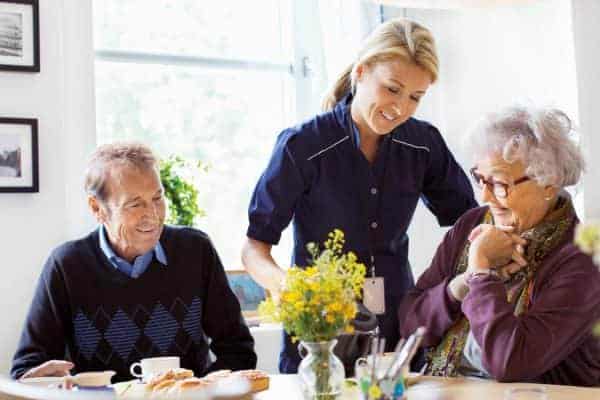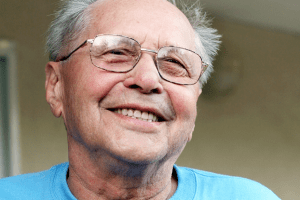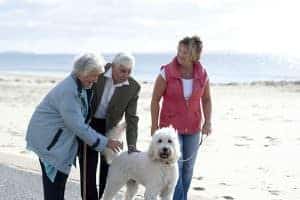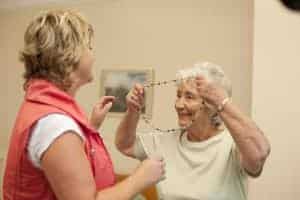Good nutrition is always important, but it becomes more important when we age. Here we look at how and why good nutrition is essential for seniors.
Good nutrition helps to protect us against chronic illnesses like diabetes and heart disease; it helps with energy levels, boosting the mood and keeping the body in great working order.
Unfortunately, over 1 million people aged 65 or over in the UK are either malnourished or at the risk of malnourishment according to AgeUK. The problem is widespread and there is still a lot of work to be done to prevent it getting worse.
One of the key reasons malnutrition occurs is because nutrition needs change as we get older, but diets aren’t often adapted to meet those changes. Live-in care and home care services will help to ensure nutrition is maintained as carers are trained to focus on the nutritional needs of the elderly. However, independent seniors or seniors in some residential care homes may struggle to get the correct level of nutrients.
It is important for all older people and their care workers to recognise that as we age, our nutritional needs change, and it is important to address those changes in order to maintain good health.
Our Nutrition Needs Change As We Age
Getting older is thought to come with muscle and bone density loss, although good levels of exercise can avoid those problems. Issues that could be unavoidable as you age though, are problems such as:
- Less stomach acid leading to malabsorption of vitamins and minerals
- Less need for calories, leading to a lower food intake and less opportunity to intake nutritious food
- Inability to recognise being thirsty or hungry
A big problem is the fact that you need to eat less calories but you still need to take on the same nutrients. Eating too much may cause obesity which is unhealthy and may cause another set of problems. Instead, older people should look to eat a balanced diet that is high in calories including fruit, vegetables, lean meat, fish and healthy sources of calcium like low fat cheese. It is also a good idea to take supplements like vitamin D, calcium and B12 to ensure essential nutrients are being taken in.
As You Get Older, Protein Intake Needs To Increase
Muscle mass and strength can reduce when you age, even if you do remain active. This loss of muscle mass can cause a higher risk of fractures and make you more frail. Remaining active and consuming more protein could help you to maintain your muscle mass and avoid you becoming weaker. Eating more protein and starting resistance exercises is a really good way to avoid muscle loss as you age.
As You Get Older, Fibre And Water Needs To Increase
Constipation is common in older people which can be uncomfortable and even painful, causing a lack of appetite and a slowing of the digestive system. Increasing fibre helps to combat constipation and get things moving. Dehydration is also common in older people so a higher intake of water is also necessary.
More Nutrients In Lower Amounts Of Food
As you get older you may need fewer calories because you may be less active and therefore burning fewer calories day to day. You may also have a lower appetite because of certain medications. Some older people can struggle to cook when they have relied on a spouse or family member for years, and suddenly the spouse or family member isn’t there anymore to help. So, in general more nutrients in a smaller amount of food is a really good goal. Your GP can help advise you on the best foods to consume for a higher nutrient density in smaller portions of food. If you have live in care or home care services, they will likely already be working to ensure your diet includes all the nutrients you need, but if you want to make sure, make your own enquiries for reassurance.
You may find these resources helpful when looking into senior nutrition:






7 Comments. Leave new
Food plays such an important part in health and wellbeing and even more so as we age. Really good advice within this blog – thank you
I agree completely. We used to have to make Mum and Dad drink enough water as they never really wanted to. The live-in carers that we had, cooked lovely meals and made sure that they were well looked after.
In fact vital for everyone!
Some excellent points. It is so important to keep your nutrition balanced as you get older, by having a live-in carer this can really help you to keep on tracking with eating good, nutritious meals.
An excellent article – this offered a new outlook on the nutritional importance whilst receiving live-in care.
A really valid article. Once my father passed away my mother lost all interest in food for a time and just couldn’t be bothered to cook for herself and either had a ‘ping’ meal or just didn’t bother at all.. Luckily now with much coaxing from family and friends she has realised that she must follow a good diet and the importance of looking after herself and her health.
[…] A high percentage of elderly people are malnourished because often their diets don’t change despite different nutritional needs as they age. As a live in carer you can provide the correct nutrition to your client. […]